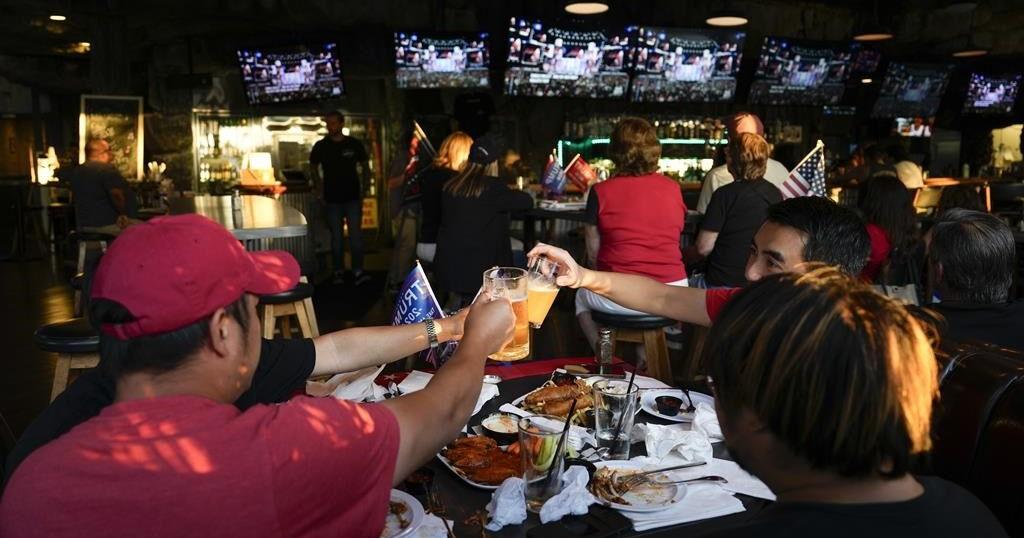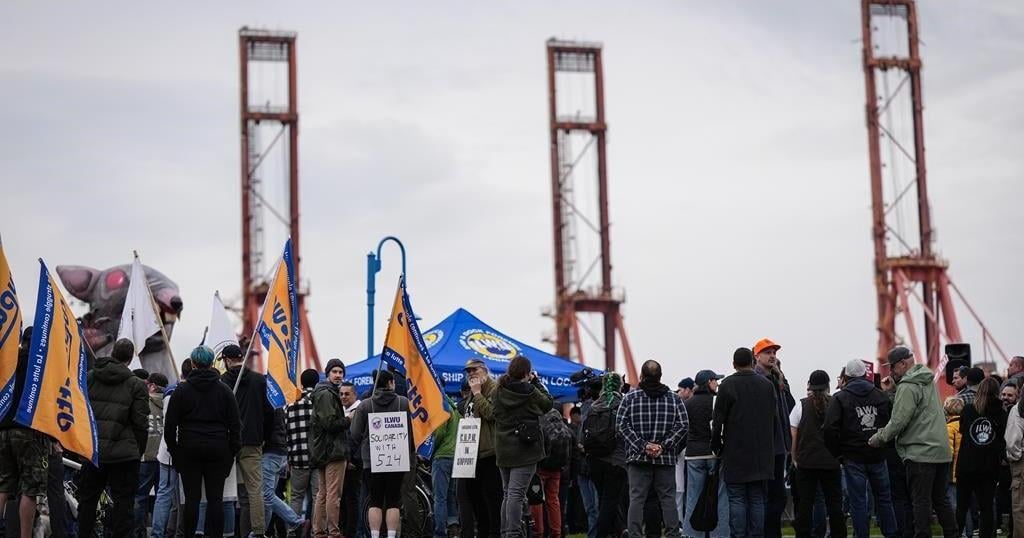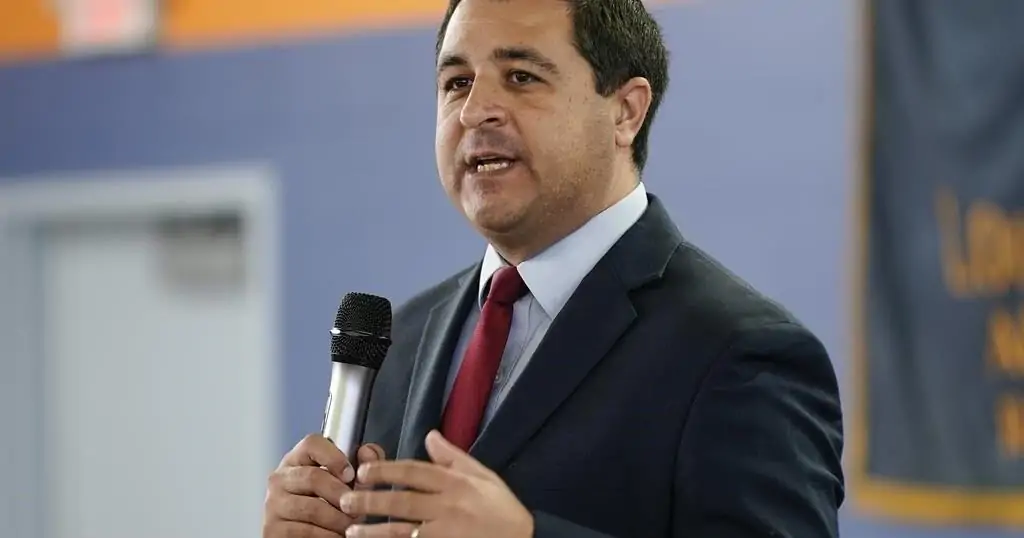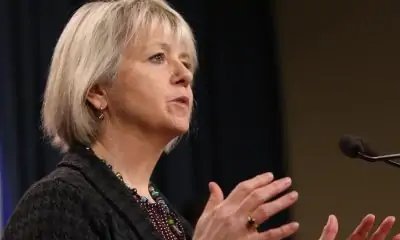MONTREAL – Canadians from coast to coast gathered Tuesday with a mixture of excitement and anxiety to watch one of the biggest political shows on Earth: the U.S. election results.
Community centres, theatres, bars, restaurants and homes across Canada turned televisions to U.S. networks Tuesday as vote counts rolled in.
All eyes were glued to an onstage television at Lithuanian House community centre in Toronto, where more than 100 people gathered for an event organized by Democrats Abroad. With final opinion polls suggesting a close race between Vice-President Kamala Harris and former president Donald Trump, attendees said they came to cheer on Harris even as some considered the chances of the race being called that night to be slim.
John Roberts, an American who has been living in Canada for nearly two decades, said he was feeling “nauseously optimistic” about a Democrat victory.
“What brought me here tonight is really an opportunity to show my support for Kamala Harris tonight and the rest of the Democratic ticket,” said Roberts, who cast his vote in the battleground state of Pennsylvania.
“It is a pivotal election for us, for the future, and I am just glad to be part of it.”
Kate Cohen, a Michigan voter who has lived in Canada for 26 years, said she was hoping to “celebrate or commiserate” with like-minded people.
Cohen said she has voted in every election since moving to Canada.
“It is a right, and it is a privilege, and I don’t think anybody should throw it away or treat it lightly,” she said.
At a pub on Saint Mary’s University campus in Halifax, the lineup for drinks grew longer as the evening progressed and results started to roll in. A cheer erupted from one booth as Trump was declared the winner in Kentucky, and more cheers followed from other tables as Bernie Sanders was declared re-elected in his Senate race as an independent in Vermont.
At McLean’s Public House in downtown Montreal, televisions switched back and forth between sports channels and CNN as hockey fans in Habs jerseys mixed with politics watchers. A staffer at a microphone, warming up the crowd for trivia, drew a loud cheer when he asked how many were rooting for Harris. The same question, about Trump, drew silence and scattered laughs.
Bar customer Ian Campbell said he was feeling “extremely worried” about the prospect of a Trump victory.
“Trump can do some serious damage, not only to the United States, but serious damage to the world,” he said, evoking the possibility of Trump pulling back from NATO and withdrawing support to Ukraine.
He said he is disappointed with both presidential candidates on some issues, including what he sees as a failure to help Palestinians in Gaza.
“I think that Harris is just a safer option and I dearly hope that she wins,” he said.
In Ottawa, U.S. Ambassador David Cohen joined join politicos and diplomats at the Metropolitain Brasserie, just steps from Parliament Hill, where he delivered brief remarks.
The Canadian International Council is holding parties for its members in Ottawa and Victoria, with the B.C. event including a trivia contest about the U.S. election.
In Windsor, Ont., people gathered at the Bourbon Tap and Grill on Ottawa Street — many of whom were involved in a door-knocking campaign to get Americans living in the city to vote.
About 600,000 people who are eligible to vote in the U.S. election live in Canada, the largest number outside the United States, according to the Federal Voting Assistance Program.
One of those is Beth Boyd, who attended a Democrats Abroad watch party at The Pleasant in Vancouver. Boyd, who has lived in Canada for about 15 years, said she mailed in her vote “about two months ago.”
“I’m from Michigan, so it’s very important, I feel,” she said of voting. “Either way it’s important but especially in Michigan because it’s a swing state — or it was last time.”
Boyd said she is hoping for a Democrat win, adding that she hasn’t been to a Democrats Abroad watch party since Donald Trump won in 2016.
“I want a do-over to make it right this time,” she said.
This report by The Canadian Press was first published Nov. 5, 2024.
— with files from Sharif Hassan in Toronto, Cassidy McMackon in Halifax and Brieanna Charlebois in Vancouver



















